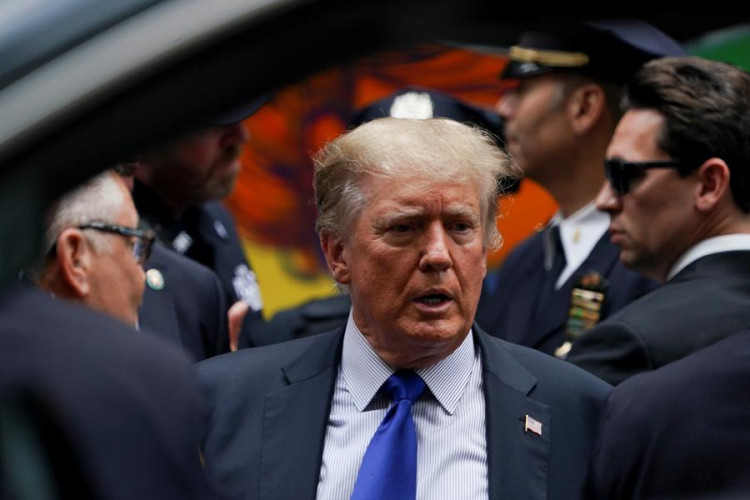The Manhattan District Attorney's office has agreed to delay sentencing for President-elect Donald Trump in his hush money case to allow sufficient time for prosecutors to address Trump's expected motion to dismiss. This decision, which comes as Trump prepares to return to the White House, underscores the complex legal maneuvers surrounding his conviction for falsifying business records tied to payments made to his former attorney Michael Cohen, who directed $130,000 to adult-film star Stormy Daniels to silence claims of an alleged affair before the 2016 election. Trump denies the affair.
The district attorney's office, led by Alvin Bragg, acknowledged that sentencing is unlikely to occur before the end of Trump's next presidential term but remains committed to upholding the conviction. "No current law establishes that a president's temporary immunity from prosecution requires dismissal of a post-trial criminal proceeding initiated when the defendant was not immune," Bragg's office wrote in a letter to Judge Juan Merchan.
Trump's legal team, however, contends that the case and potential sentencing must be delayed to avoid unconstitutional constraints on his ability to govern. Emil Bove, one of Trump's attorneys and a prospective high-ranking appointee in his new administration, argued, "The stay, and dismissal, are necessary to avoid unconstitutional impediments to President Trump's ability to govern."
The former president's legal strategy has centered on delaying legal proceedings until after the 2024 election, a maneuver that has largely succeeded across multiple cases. Two federal cases against Trump are nearing resolution, the Georgia state case remains stalled, and the New York case now appears poised for a significant pause. Trump was convicted by a Manhattan jury on 34 counts of falsifying business records following a two-month trial. Since then, legal motions, including a Supreme Court ruling regarding presidential immunity, have delayed sentencing and introduced additional layers of complexity.
Trump's legal team has pushed to have the conviction vacated, arguing that evidence tied to his actions as president during his first term should not have been presented. Todd Blanche, a Trump attorney, highlighted this in a recent filing, stating, "Because an Indictment so tainted cannot stand, the charges must be dismissed." The motion also raised concerns about the use of specific testimony and materials presented during the trial, arguing they fell under the scope of protected official acts.
Prosecutors have resisted dismissing the case entirely but acknowledged the need to consider constitutional implications of pursuing criminal proceedings against a sitting president. In a letter to the court, Bragg proposed exploring "non-dismissal options" that could balance competing constitutional interests without ending the case altogether. The defense's latest motions seek to challenge the admissibility of evidence, citing the Supreme Court's ruling on immunity.
This case represents just one of many legal challenges faced by Trump, who has managed to intertwine his political comeback with ongoing legal disputes. The outcome of the Manhattan case could have far-reaching implications, both legally and politically. Trump spokesperson Steven Cheung hailed the DA's decision as "a total and definitive victory for President Trump," emphasizing its significance for both Trump and his supporters.
Legal experts, such as CNN senior analyst Elie Honig, have pointed out the complexities of prosecuting a sitting president, noting, "The clock ran out. We like to say no person is above the law in this country, but the fact is one person largely is, and that's the president, because of the immunity ruling and because of the DOJ policy."
The case in New York remains unique as the only one to reach trial, with Trump having pleaded not guilty to all 34 charges. Legal arguments continue, with Trump's attorneys asserting that Bragg's reliance on certain evidence violated the Supreme Court's immunity protections. As the legal process unfolds, it highlights the intersection of law, politics, and presidential power in unprecedented ways.




